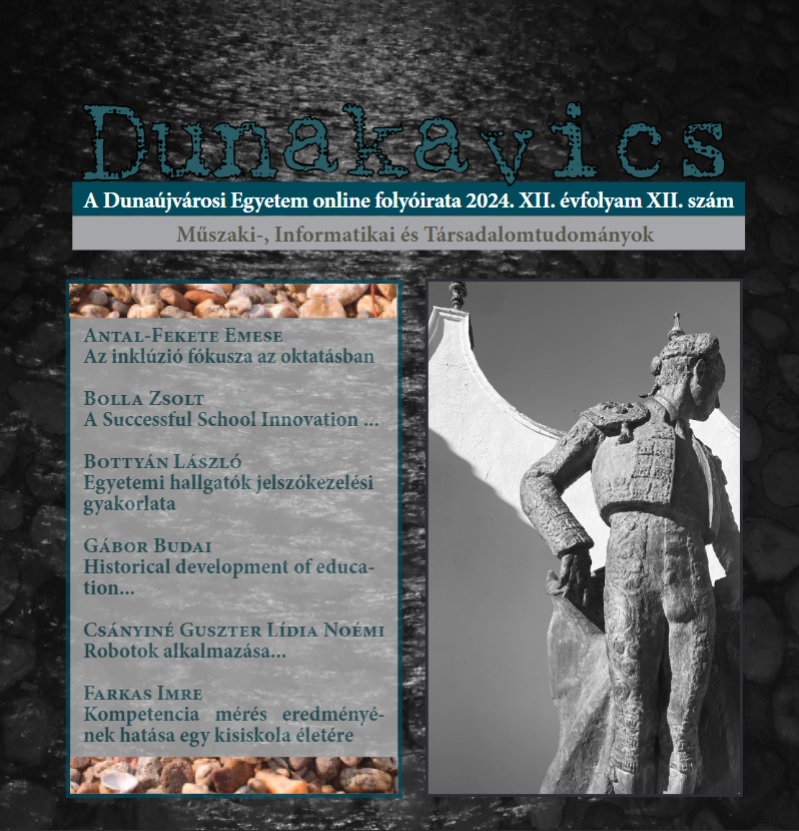Robotok alkalmazása egy gyógypedagógiai intézmény tanulásban akadályozott tanulóinak évfolyamain
Absztrakt
A mai világban a technológia áthatja életünk szinte minden területét. A 21. század digitális társadalmában az algoritmikus gondolkodás és a robotika ismerete alapvető készségekké válnak, amelyek nemcsak a technológiai pályákhoz, hanem a mindennapi problémamegoldáshoz is elengedhetetlenek. Az iskola feladata felkészíteni a diákokat arra, hogy helyt tudjanak állni az ismeretlen jövő munkaerő piacán. Az oktatásban ezért a fejlesztendő területek közé tartozik a teljesség igénye nélkül az innováció, együttműködés, kreativitás, kritikus gondolkodás, problémamegoldás, IKT használat és nem utolsó sorban az algoritmikus gondolkodás. Mindezekre lehetőséget biztosít a robotok alkalmazása az oktatásban. Ennek azonban nem csupán a digitális kultúra órákra kell korlátozódnia, hanem integrálódnia kell a különböző tantárgyakba is, hogy a tanulók számára elegendő mennyiségű hozzáférést biztosítson ezekhez a kulcsfontosságú kompetenciáknak a fejlesztéséhez. Gyógypedagógusként kiemelten fontosnak tartom, hogy a sajátos nevelési igényű gyermekek is részesüljenek ilyen fejlesztésben, és megismerkedhessenek a robotika alapjaival. Tanulmányom célja, bemutatni milyen módon valósul meg ez a törekvés intézményünk tanulásban akadályozott osztályainak tanóráin.




